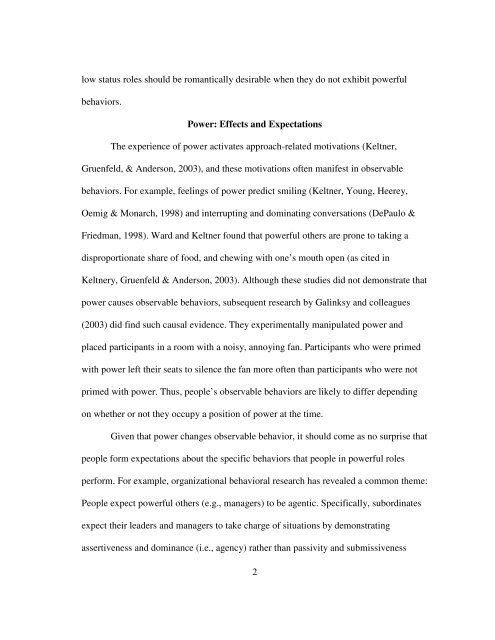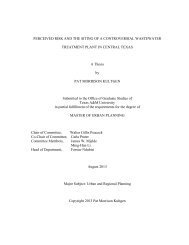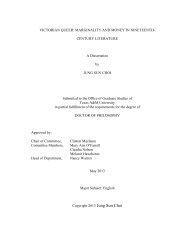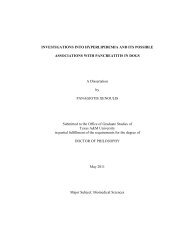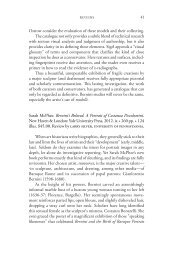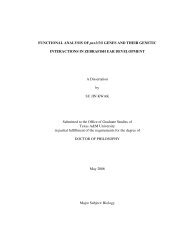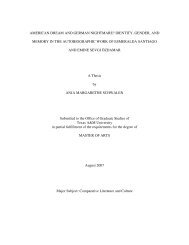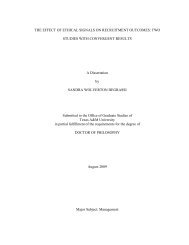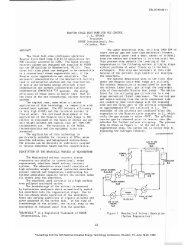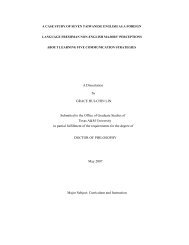A ROLE CONGRUITY ACCOUNT OF ROMANTIC ... - Repository
A ROLE CONGRUITY ACCOUNT OF ROMANTIC ... - Repository
A ROLE CONGRUITY ACCOUNT OF ROMANTIC ... - Repository
You also want an ePaper? Increase the reach of your titles
YUMPU automatically turns print PDFs into web optimized ePapers that Google loves.
low status roles should be romantically desirable when they do not exhibit powerful<br />
behaviors.<br />
Power: Effects and Expectations<br />
The experience of power activates approach-related motivations (Keltner,<br />
Gruenfeld, & Anderson, 2003), and these motivations often manifest in observable<br />
behaviors. For example, feelings of power predict smiling (Keltner, Young, Heerey,<br />
Oemig & Monarch, 1998) and interrupting and dominating conversations (DePaulo &<br />
Friedman, 1998). Ward and Keltner found that powerful others are prone to taking a<br />
disproportionate share of food, and chewing with one’s mouth open (as cited in<br />
Keltnery, Gruenfeld & Anderson, 2003). Although these studies did not demonstrate that<br />
power causes observable behaviors, subsequent research by Galinksy and colleagues<br />
(2003) did find such causal evidence. They experimentally manipulated power and<br />
placed participants in a room with a noisy, annoying fan. Participants who were primed<br />
with power left their seats to silence the fan more often than participants who were not<br />
primed with power. Thus, people’s observable behaviors are likely to differ depending<br />
on whether or not they occupy a position of power at the time.<br />
Given that power changes observable behavior, it should come as no surprise that<br />
people form expectations about the specific behaviors that people in powerful roles<br />
perform. For example, organizational behavioral research has revealed a common theme:<br />
People expect powerful others (e.g., managers) to be agentic. Specifically, subordinates<br />
expect their leaders and managers to take charge of situations by demonstrating<br />
assertiveness and dominance (i.e., agency) rather than passivity and submissiveness<br />
2


